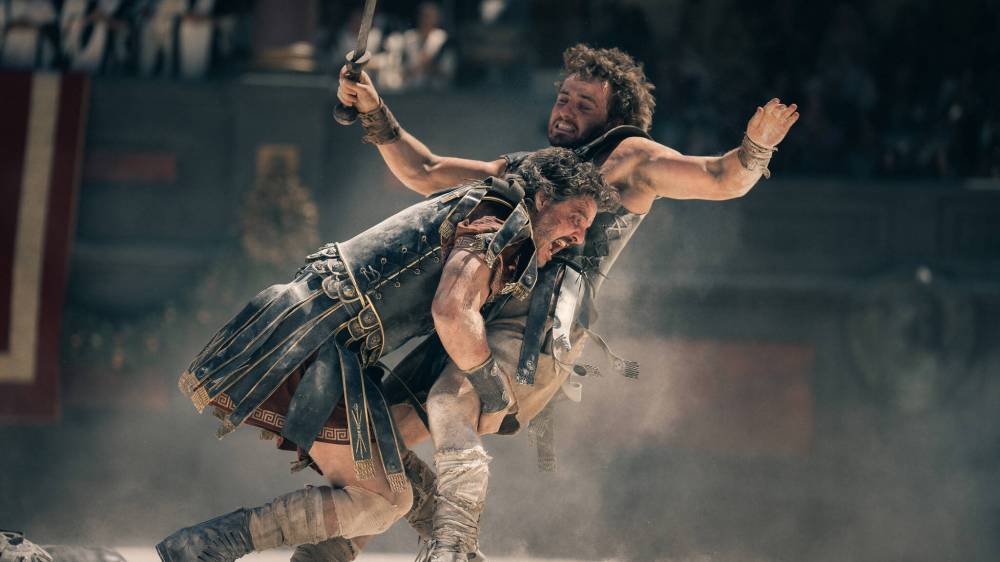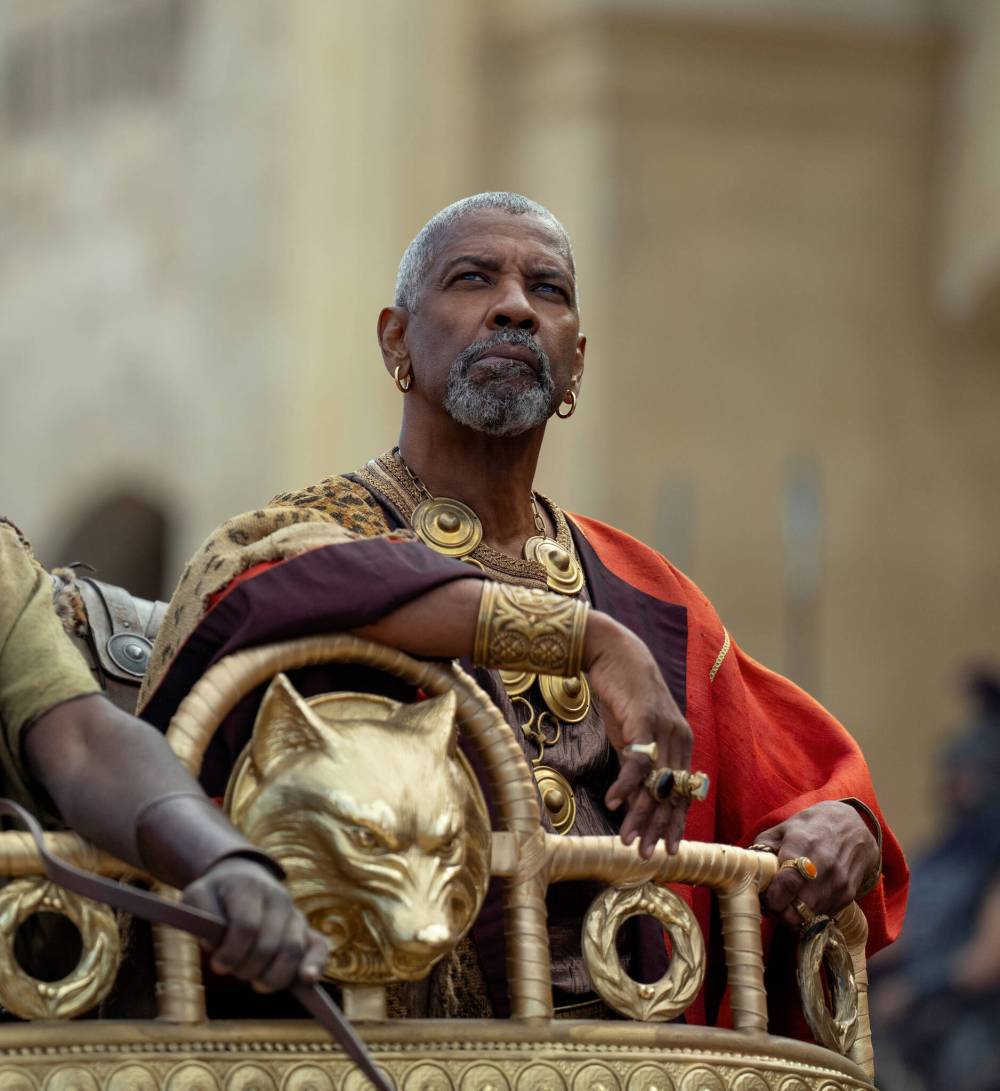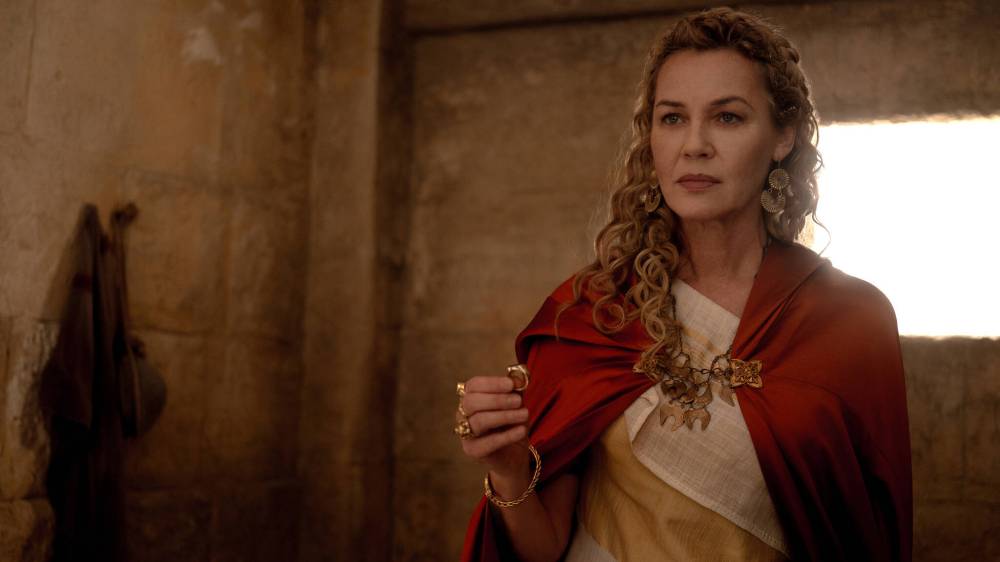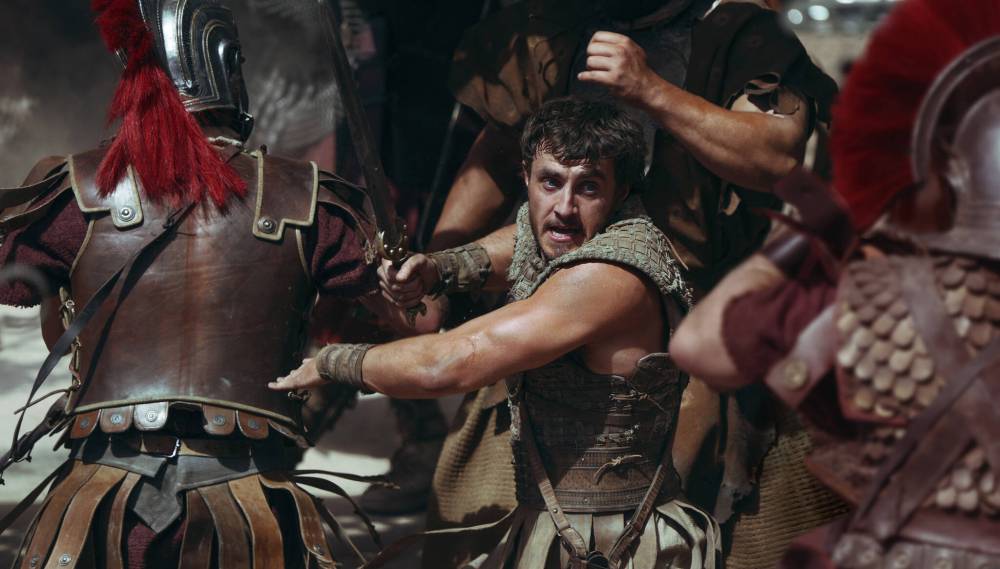Maximus spectacle, minimus impact
Are we not still entertained? Sometimes
Advertisement
Read this article for free:
or
Already have an account? Log in here »
To continue reading, please subscribe:
Monthly Digital Subscription
$0 for the first 4 weeks*
- Enjoy unlimited reading on winnipegfreepress.com
- Read the E-Edition, our digital replica newspaper
- Access News Break, our award-winning app
- Play interactive puzzles
*No charge for 4 weeks then price increases to the regular rate of $19.00 plus GST every four weeks. Offer available to new and qualified returning subscribers only. Cancel any time.
Monthly Digital Subscription
$4.75/week*
- Enjoy unlimited reading on winnipegfreepress.com
- Read the E-Edition, our digital replica newspaper
- Access News Break, our award-winning app
- Play interactive puzzles
*Billed as $19 plus GST every four weeks. Cancel any time.
To continue reading, please subscribe:
Add Free Press access to your Brandon Sun subscription for only an additional
$1 for the first 4 weeks*
*Your next subscription payment will increase by $1.00 and you will be charged $16.99 plus GST for four weeks. After four weeks, your payment will increase to $23.99 plus GST every four weeks.
Read unlimited articles for free today:
or
Already have an account? Log in here »
Hey there, time traveller!
This article was published 23/11/2024 (361 days ago), so information in it may no longer be current.
Ancestor worship was a thing in ancient Rome, so maybe it’s no surprise that Gladiator II, directed by Ridley Scott and scripted by David Scarpa, pays homage to the 2000 original, a sword-and-sandals classic that famously starred Russell Crowe in his brief beefcake phase.
Returning to some of the same characters and set 15 years after the first story, this action epic is bigger, bloodier and battened with more CGI. But as it goes beyond the usual nostalgic callbacks and flashbacks to outright repetition, Gladiator II can feel overly reverential.
While this sequel remains consistently watchable, Scott and Scarpa (who recently collaborated on the disastrous Napoleon) never catch the electrifying vibe of its progenitor.
Irish star Paul Mescal (Normal People) plays Lucius, a man of mysterious origins who has made a peaceable life in the kingdom of Numidia on the north coast of Africa. When he and his wife, Arishat (Yuval Gonen of The Missing), are called to take up arms and defend their city against a Roman invasion led by general Marcus Acacius (Pedro Pascal from The Last of Us), Arishat is killed and a grieving Lucius is enslaved and brought to Rome.
There, Lucius’s rage against Acacius and the Romans is channelled into the gladiatorial arena, which is overseen by the cunning, manipulative Macrinus (Oscar winner Denzel Washington).
Filmed with Scott’s typical hyperkinetic and speedy style, these fight sequences include a battle with rabid baboons, a standoff with a rhino and a naval battle recreated in a flooded, shark-infested arena.
The increasingly baroque nature of these encounters leads to a bit of a paradox. We are clearly supposed to despise the bored, decadent aristos and bloody-minded mob for craving the gory spectacle of the Colosseum, even though we are watching the same thing, just at one more remove. (“Are you not entertained?” as Crowe’s Maximus would say.)
Meanwhile, Acacius, who has more in common with Lucius than either man realizes, and his wife, Lucilla (played once again by Danish star Connie Nielsen), are trying to organize a rebellion against tyrannical twin emperors Geta and Caracalla (Stranger Things’ Joseph Quinn and Nickel Boys’ Fred Hechinger).

Aidan Monaghan / Paramount Pictures
Pedro Pascal (left) and Paul Mescal grapple in Gladiator II.
These emperors may be cruel and capricious but even with two of them, they never make the impact of the original’s Joaquin Phoenix, who starred as the vain, volatile Commodus.
Likewise, Mescal can’t quite fill Crowe’s sandals. He delivers what could have been a fine, unshowy performance in a smaller film, but his work doesn’t quite hold up on an epic scale.
The original Gladiator succeeded because Crowe was able to deliver lines like, “At my signal, unleash hell,” in a way that was somehow both absolutely serious and completely cheesy. (This is a skill that has proved handy as his career has taken a hard B-movie turn.)
Here the moral seriousness often feels glum, and the high-camp excesses don’t have as much flair. The one person who manages to walk that tricky tonal tightrope is Washington, who is having an absolute ball.
Scarpa and Scott do offer an intriguing sense of Rome as polyglot and pansexual, chaotic and cosmopolitan, with magnificent backgrounds that reference everything from Spartacus to Jesus Christ Superstar.

Aidan Monaghan / Paramount Pictures
Denzel Washington is the only one who is able to balance the tonal tightrope the film walks.
And Scarpa gets in some political debate. Never mind the wholesale slaughter in the Colosseum, the real battle in Gladiator II is over what Rome should be. In Macrinus’s realpolitik view, Rome will only ever be about power and violence, about the strong oppressing the weak.
Lucius, on the other hand, begins to believe in the late emperor Marcus Aurelius’s “dream of Rome” — a state ruled by laws and not by petulant and unpredictable autocrats. As Lucius sees it, Rome must be “a city for the many and a home to those in need.”
You can probably sense where the subtext is going in this 2024 iteration of the Gladiator story. Hopefully, the present-day fights over who gets to claim classical Rome as their own will stay online.
alison.gillmor@freepress.mb.ca

Connie Nielsen as Lucilla in “Gladiator II.” (Cuba Scott/Paramount Pictures/TNS)
Connie Nielsen as Lucilla in “Gladiator II.” (Cuba Scott/Paramount Pictures/TNS)

Aidan Monaghan / Paramount Pictures
Paul Mescal fights for revenge in Gladiator II.

Studying at the University of Winnipeg and later Toronto’s York University, Alison Gillmor planned to become an art historian. She ended up catching the journalism bug when she started as visual arts reviewer at the Winnipeg Free Press in 1992.
Our newsroom depends on a growing audience of readers to power our journalism. If you are not a paid reader, please consider becoming a subscriber.
Our newsroom depends on its audience of readers to power our journalism. Thank you for your support.

